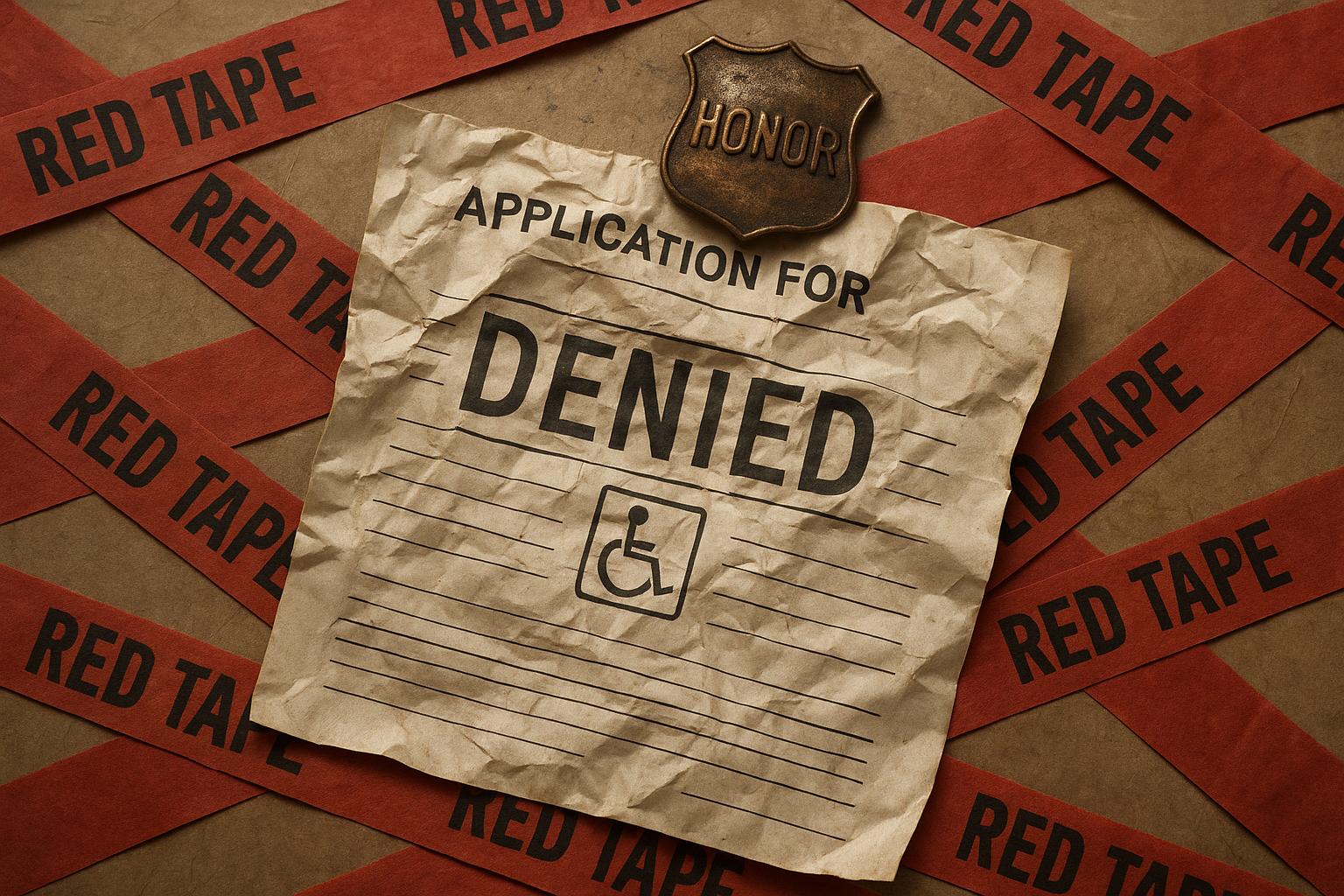Charlotte Throssel’s experience highlights a disturbing failure within our national support systems, a bureaucratic maze that unfairly denies essential assistance to those with lifelong disabilities. As chief executive of a disability charity in Nottingham, she has exposed an alarming truth: individuals with severe mobility impairments, who clearly qualify for Blue Badges, are being systematically withheld this vital support under the guise of ‘rules’ that are applied capriciously and without compassion.
Throssel, born with phocomelia and relying on a wheelchair due to additional spinal issues, was met with bureaucratic stonewalling when she applied for her Blue Badge through Leicestershire County Council. Despite submitting detailed medical evidence and a comprehensive care plan, evidence that any responsible authority would reasonably accept, her application was initially rejected. The council’s demand for further proof of her disability’s impact on her mobility reveals a troubling misplaced skepticism that often dismisses the realities faced by lifelong sufferers. It’s a clear indication that local authorities are often more interested in red tape than genuine support for vulnerable residents.
This isn’t an isolated case. Siobhan Walker, a 21-year-old with multiple disabilities, including hearing and visual impairments, had her Blue Badge renewal refused by Nottingham City Council, despite holding one since childhood. Only the intervention of a local charity, another example of how the system relies heavily on charity interventions to correct its failures, restored her access after six months of unnecessary hardship. Such stories demonstrate the systemic failure to treat disabled individuals with the dignity and respect they deserve while exposing how inconsistent rules and bureaucratic rigidity create unnecessary suffering.
Official government guidelines specify that Blue Badges are meant to assist people with “substantial and enduring mobility problems,” yet the discretion left to local councils often leads to inconsistent and unfair decisions. While some authorities like Leicestershire eventually rectified their mistake after public pressure, the delays and frustration experienced by applicants reveal a system badly in need of reform. It’s no wonder that those with fluctuating or less visible disabilities, who often must provide reams of complex evidence, find themselves caught in a Kafkaesque cycle of application and rejection.
Despite recent legislation expanding eligibility and a rise in Blue Badge numbers to nearly 2.6 million by early 2023, the uptake among those entitled remains stubbornly low, largely because of bureaucratic barriers and overly cautious discretion exercised by local authorities. This points to systemic flaws that prioritise rules over humanity. Such rigidity stands in stark contrast to the common-sense approach needed to support disabled people’s independence, especially those with lifelong, non-visible conditions.
Across Wales and London, stricter guidelines and more carefully defined eligibility criteria are in place, yet the core problem persists: those with genuine needs are frequently turned away due to ambiguous or overly strict interpretations of the rules. This reflects a broader failure of government policy, which seems more focused on minimising liabilities and cutting costs than on addressing the real needs of disabled citizens.
The case of Ms Throssel and others like her exposes a broken system that, right now, impedes the independence and dignity of disabled people instead of empowering them. There is an urgent need for a standardised, compassionate approach, removing unnecessary hurdles and ensuring that lifetimes of disability are recognised without constant suspicion or bureaucratic delay. Government authorities must stop hiding behind their rules and start prioritising the needs of the vulnerable over bureaucratic convenience, otherwise, they betray the very purpose of support schemes intended to serve those in genuine need.
Source: Noah Wire Services
